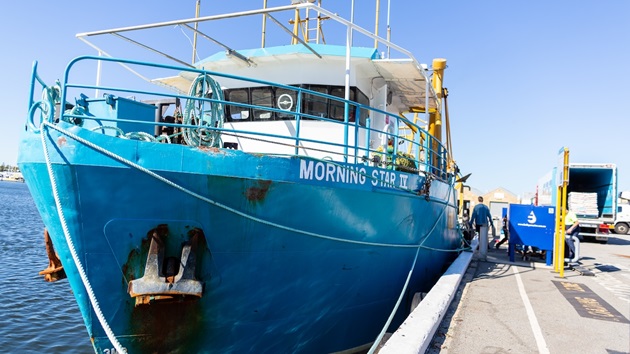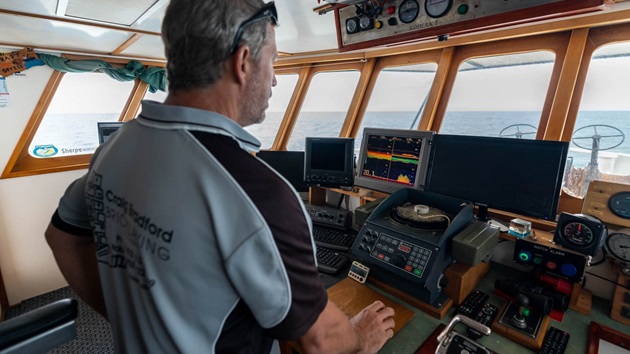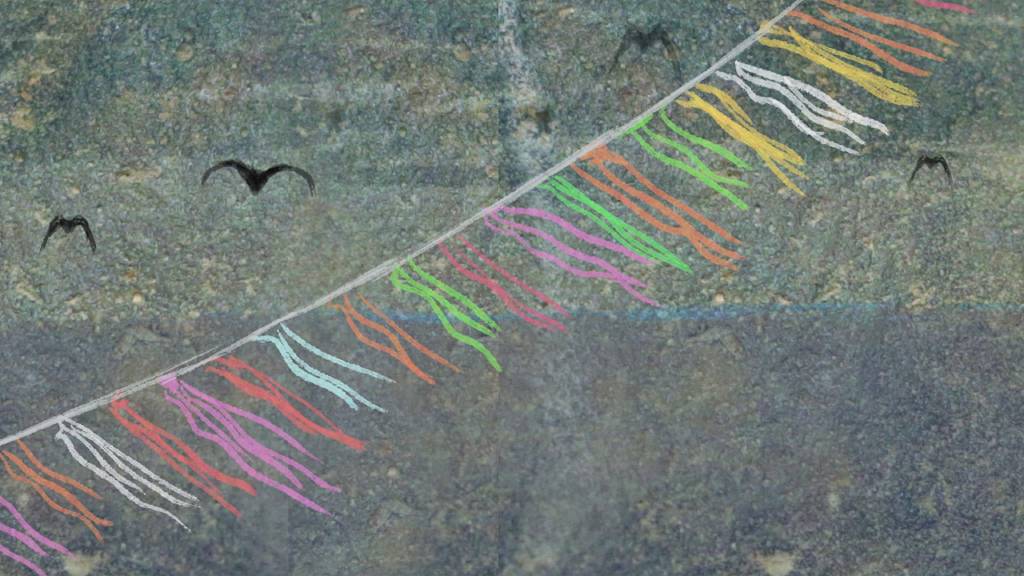Explore education resources for Science Years 5-10 (Stages 3-5). All resources are aligned with Version 9 of the ACARA Australian Curriculum.
Science Years 3&4
These resources are designed for teaching students Science in Years 3 & 4 (ages 8-10).
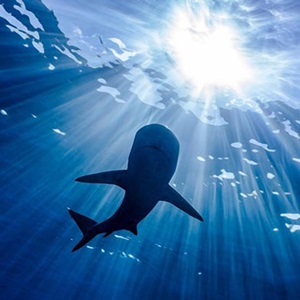
Sharks in the Marine Ecosystem
Learners will identify producers, consumers and decomposers in the food chain, and understand the importance of sharks in the marine ecosystem.

Thank you, Fishers
Learn about fisheries in Australia that are working to safeguard future generations of both people and fish. A set of slides is provided, and an accompanying Kahoot! quiz about the collapse of the Atlantic Cod fishing industry in the 1980s.
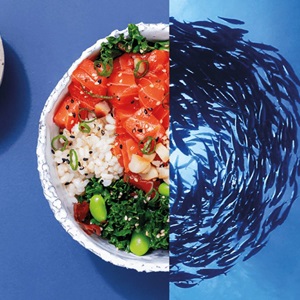
World Ocean Day
In this activity, learners investigate what taking care of the ocean involves for the people who catch our fish. They look at stories of real fishers taking steps to look after the ocean and find out what fishing sustainably really means in practice.
Science Years 5&6
These resources are designed for teaching students Science in Years 5 & 6 (ages 10-12).
Scallops: Witness to Climate Change
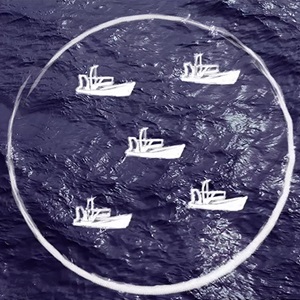
Marine habitats and overfishing
Explore what life looks like underwater, learn about different marine habitats, and discover how fish species have adapted to unique marine environments.
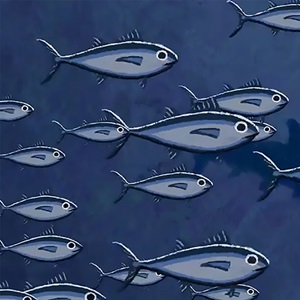
What is a fish?
Learn about the scientific characteristics of a fish, the unique features of different fish species, and how these influence their habitats and behaviour.
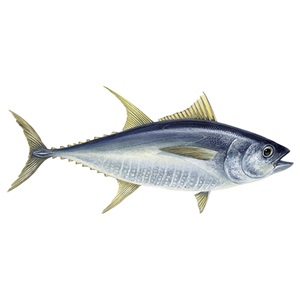
Scientific Key
Identify fish body, eye, mouth, tail fin, pectoral and dorsal fin shapes.
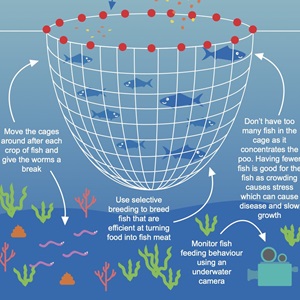
Food: Different by Design
Learners will discover some of the innovations being made in aquaculture and wild fishing to help reduce pollution and entanglements with marine wildlife.
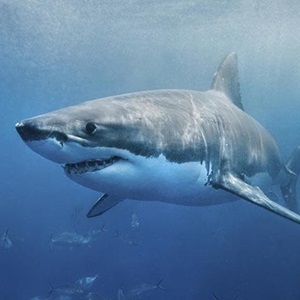
Incredible Sharks!
Students will learn about shark features, adaptations, and behaviours. Listen to a podcast, play a quiz, and work in groups to understand unsustainable fishing challenges.

Thank you, Fishers
Learn about fisheries in Australia that are working to safeguard future generations of both people and fish. A set of slides is provided, and an accompanying Kahoot! quiz about the collapse of the Atlantic Cod fishing industry in the 1980s.

World Ocean Day
In this activity, learners investigate what taking care of the ocean involves for the people who catch our fish. They look at stories of real fishers taking steps to look after the ocean and find out what fishing sustainably really means in practice.
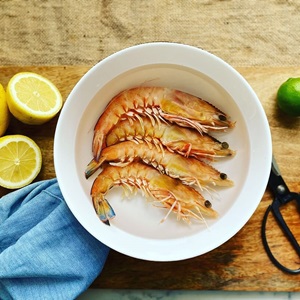
Christmas Prawns in Australia
In this 40-60 minute lesson for ages 10+ learners will discuss the Australian Christmas tradition of eating prawns, and the importance of sourcing sustainable seafood. Students learn about the anatomy of a prawn.
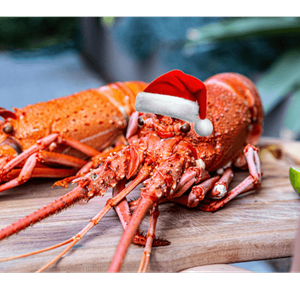
Christmas Lob-Star
In this 40-60 minute lesson, learners will discuss lobsters using a video clip 'The space telescopes inspired by lobsters' as a starting point. Learners will examine some key differences between Australian and European/American lobsters while crafting a LobStar Tree-Topper for the festive season.
Science Years 7&8
These resources are designed for students Science in Years 7&8 (ages 12-14).
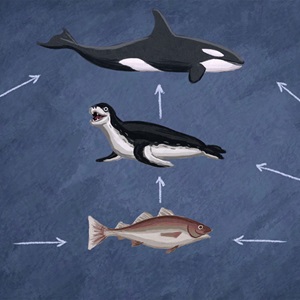
Marine food webs and overfishing
Explore how food webs work in the marine environment, the consequences of overfishing on ocean life, and how sustainable fishing protects marine ecosystems.

Food: Different by design
Learners will discover some of the innovations being made in aquaculture and wild fishing to help reduce pollution and entanglements with marine wildlife.

Thank you, Fishers
Learn about fisheries in Australia that are working to safeguard future generations of both people and fish. A set of slides is provided, and an accompanying Kahoot! quiz about the collapse of the Atlantic Cod fishing industry in the 1980s.
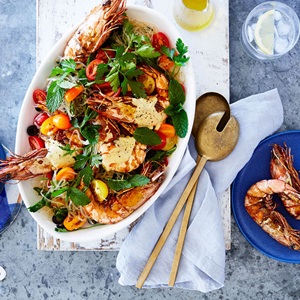
Christmas Prawns in Australia
In this 45-60 minute lesson for ages 12+ learners will discuss the Australian Christmas tradition of eating prawns, and the importance of sourcing sustainable seafood. Conduct a dissection activity with your class using supermarket prawns.

Christmas Lob-Star
In this 40-60 minute lesson, learners will discuss lobsters using a video clip 'The space telescopes inspired by lobsters' as a starting point. Learners will examine some key differences between Australian and European/American lobsters while crafting a LobStar Tree-Topper for the festive season.
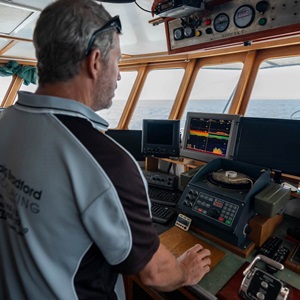
Marine Studies
Explore education resources for Marine Studies students Years 7-12. All resources are aligned with the NESA Syllabus (New South Wales).
Science Years 9&10
These resources are designed for students Science in Years 9&10 (ages 14-16).
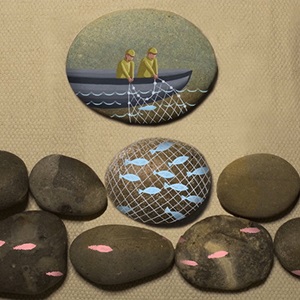
Science for sustainable oceans
Understand how the world’s oceans are at risk from overfishing, how scientific knowledge can be used to prevent overfishing, and ways that science can be used to support sustainable fishing.
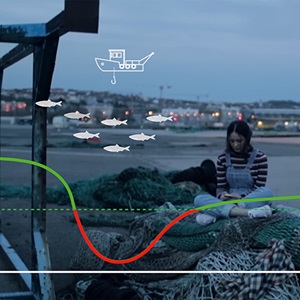
Unsustainable fishing challenges
Learn about a number of unsustainable fishing challenges affecting our oceans today.

Christmas Prawns in Australia
In this 45-60 minute lesson for ages 12+ learners will discuss the Australian Christmas tradition of eating prawns, and the importance of sourcing sustainable seafood. Conduct a dissection activity with your class using supermarket prawns.
Marine Studies
National Science Week Q&As
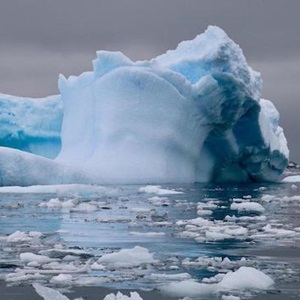
Fishing in Antarctica
In this lesson, learn about the great variety of sea life in the sub-Antarctic, from the Patagonian Toothfish to the Emperor Penguin, with special guests.
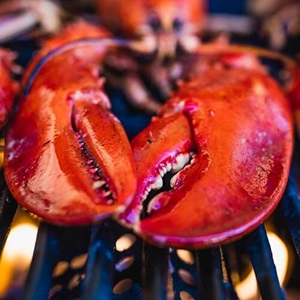
Chemistry in the Kitchen
In this lesson students learn about how lobsters are caught and what happens to lobster when it is cooked in different ways, with special guests.

From Fish to Fillet
In this lesson, learn about the journey of our fish from the boat to the shop. How big are tuna, how are they caught, and how do they become a fillet of fish? With special guests
Classroom activities and video clips
Explore classroom activities developed in conjunction with the Saltwater Schools lesson plans for Science Stages 3-5, Humanities and Social Sciences Stage 3, and Geography Stage 5 of the Australian curriculum.

